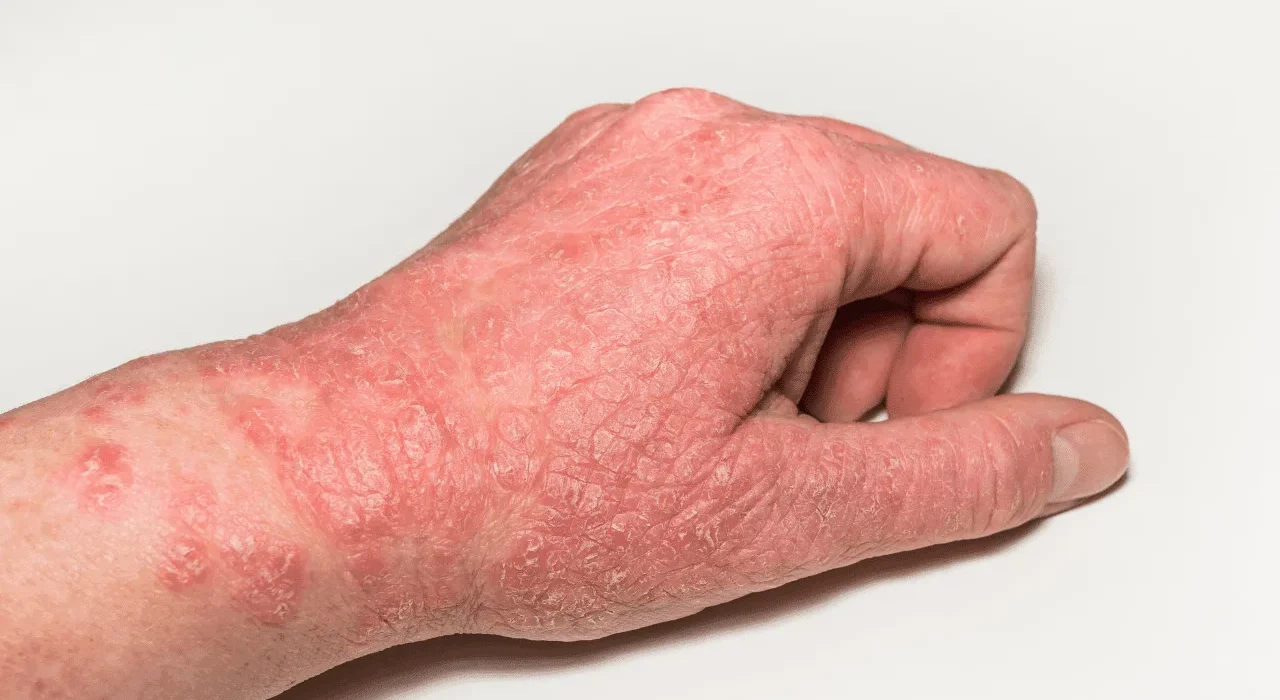What Is Eczema and Why Does It Affect Some People More Than Others?
Eczema, also known as atopic dermatitis, is a chronic skin condition that causes inflammation, redness, and itchiness. It can significantly impact a person’s quality of life, leading to discomfort and sometimes affecting self-confidence. Understanding what eczema is and why some people are more susceptible can help in its management and prevention.
What Is Eczema?
Eczema is a non-contagious skin condition that results in itchy, inflamed, and irritated skin. It often begins in childhood, but it can develop at any age. Eczema tends to flare up periodically and may be accompanied by other allergic conditions such as asthma or hay fever.
Types of Eczema:
- Atopic Dermatitis: The most common form, often associated with other allergic conditions.
- Contact Dermatitis: Triggered by contact with irritants or allergens.
- Dyshidrotic Eczema: Causes small, itchy blisters on the hands and feet.
- Nummular Eczema: Characterized by round, coin-shaped spots of irritation.
- Seborrheic Dermatitis: Affects oily areas of the body, such as the scalp and face.
- Stasis Dermatitis: Occurs in the lower legs due to poor circulation.
Also read:- Homeopathy Remedies for Skin Allergy, Itching & Urticaria: Safe & Effective Natural Relief
Symptoms of Eczema
The symptoms of eczema can vary depending on the type and severity of the condition. Common signs include:
- Intense itching
- Red, inflamed patches of skin
- Dry, scaly, or cracked skin
- Oozing or crusting in severe cases
- Thickened or leathery skin from prolonged scratching
Eczema symptoms can worsen during flare-ups and may improve during remission periods.
Also read:- Homeopathy vs Dermatology for Skin Disorders – Which Is Better for a Long-Term Cure?
Why Do Some People Develop Eczema?
Eczema is believed to result from a combination of genetic, environmental, and immune system factors. Here’s why some individuals are more prone to it:
1. Genetic Factors
- A family history of eczema, asthma, or hay fever increases the likelihood of developing eczema.
- Mutations in the filaggrin gene, which helps maintain the skin’s protective barrier, can make the skin more vulnerable to irritation.
2. Immune System Dysregulation
- An overactive immune response can trigger inflammation, leading to eczema symptoms.
- Individuals with eczema often have heightened sensitivity to allergens and irritants.
3. Environmental Triggers
- Exposure to allergens like pollen, pet dander, or dust mites can provoke flare-ups.
- Irritants such as soaps, detergents, and perfumes can exacerbate symptoms.
- Extreme weather conditions, whether cold and dry or hot and humid, can aggravate eczema.
4. Lifestyle Factors
- Stress can worsen eczema by triggering immune responses.
- Poor skincare routines, such as using harsh products or not moisturizing, can compromise the skin barrier.
Also read:- Common Skin Disorders | Causes, Symptoms & Treatment
How to Manage Eczema
While eczema cannot be cured, it can be effectively managed through a combination of treatments and lifestyle adjustments:
1. Skincare Routine
- Use gentle, fragrance-free cleansers and moisturizers.
- Apply moisturizer immediately after bathing to lock in moisture.
- Take lukewarm showers to prevent skin dryness.
2. Medications
- Topical Corticosteroids: Reduce inflammation and itching.
- Calcineurin Inhibitors: Non-steroidal creams for sensitive areas like the face.
- Antihistamines: Help manage itching, especially at night.
- Immunosuppressants: For severe cases unresponsive to other treatments.
3. Lifestyle Changes
- Identify and avoid triggers, such as certain fabrics or household cleaners.
- Manage stress through relaxation techniques like yoga or meditation.
- Maintain a balanced diet to support overall skin health.
4. Advanced Treatments
- Phototherapy: Uses ultraviolet (UV) light to reduce inflammation.
- Biologics: Target specific parts of the immune system to prevent flare-ups.
Also read:- Common Allergens in Abu Dhabi: Dust, Pollen & How Homeopathy Can Help Long Term
Preventing Eczema Flare-Ups
Preventative measures can help reduce the frequency and severity of eczema symptoms:
- Keep skin hydrated by applying moisturizers daily.
- Use humidifiers to maintain indoor air moisture levels.
- Wear soft, breathable fabrics and avoid wool or synthetic materials.
- Protect your skin from extreme temperatures and environmental irritants.
When to Seek Medical Advice
If eczema symptoms worsen or interfere with daily life, it’s important to consult a healthcare professional. Signs that require medical attention include:
- Intense itching that disrupts sleep or daily activities.
- Signs of infection, such as oozing, swelling, or increased redness.
- Symptoms that persist despite over-the-counter treatments.
A dermatologist can provide a tailored treatment plan and recommend advanced therapies if needed.
Conclusion
Eczema is a chronic condition that varies widely in severity and triggers. By understanding its causes and adopting proactive management strategies, individuals with eczema can minimize flare-ups and maintain healthier skin. Remember, early intervention and consistent care are key to living well with eczema. If you suspect you have eczema or are struggling to manage symptoms, consult a dermatologist for professional guidance.



